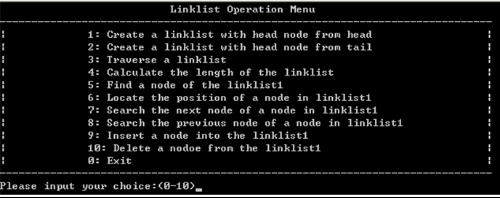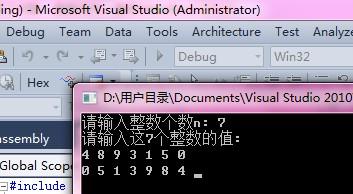POJ2389:Bull Math
DescriptionBulls are so much better at math than the cows. They can multiply huge integers together and get perfectly precise answers ... or so they say. Farmer John wonders if their answers are correct. Help him check the bulls' answers. Read in two positive integers (no more than 40 digits each) and compute their product. Output it as a normal number (with no extra leading zeros).
FJ asks that you do this yourself; don't use a special library function for the multiplication.
Input
* Lines 1..2: Each line contains a single decimal number.
Output
* Line 1: The exact product of the two input lines
Sample Input
11111111111111
1111111111
Sample Output
12345679011110987654321
//一开始没有考虑边界情况,导致溢出了
大数乘法模板题
[cpp]
#include <stdio.h>
#include <string.h>
void mult(char a[],char b[],char s[])
{
int i,j,k = 0,alen,blen,sum = 0,res[650][650]={0},flag = 0;
char result[650];
alen = strlen(a);
blen = strlen(b);
for(i = 0;i<alen;i++)
{
for(j = 0;j<blen;j++)
res[i][j] = (a[i]-'0')*(b[j]-'0');
}
for(i = alen-1;i>=0;i--)
{
for(j = blen-1;j>=0;j--)
{
sum = sum+res[i+blen-j-1][j];
}
result[k] = sum%10;
k++;
sum = sum/10;
}
for(i = blen-2;i>=0;i--)
{
for(j = 0;j<=i;j++)
{
sum = sum+res[i-j][j];
}
result[k] = sum%10;
k++;
sum = sum/10;
}
if(sum)
{
result[k] = sum;
k++;
}
for(i = 0;i<k;i++)
result[i]+='0';
for(i = k-1;i>=0;i--)
s[i] = result[k-1-i];
s[k] = '\0';
while(1)
{
if(strlen(s)!=strlen(a) && s[0] == '0')
strcpy(s,s+1);
else
break;
}
}
int main()
{
char c[1000],t[1000],sum[100000];
int m;
while(~scanf("%s%s",c,t))
{
mult(c,t,sum);
printf("%s\n",sum);
}
return 0;
}
补充:软件开发 , C++ ,




